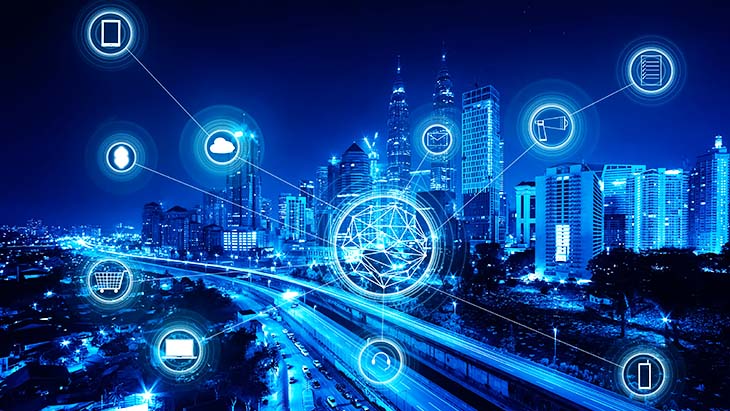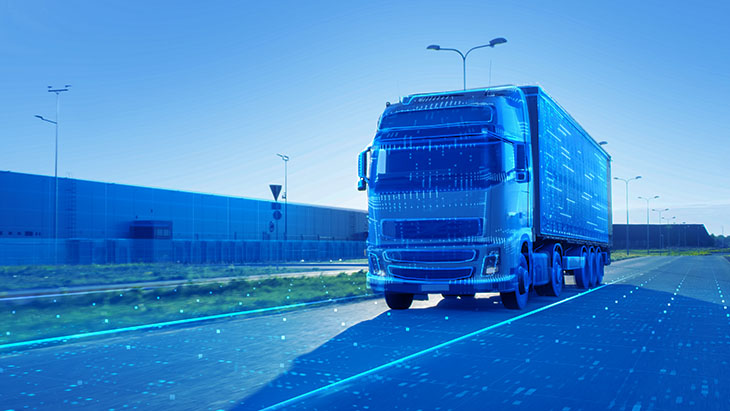
Smart Cities and Cybersecurity
The co-existence of digital and physical infrastructure services provided by the Cloud and the Internet of Things (IoT) in smart cities renders these cities increasingly vulnerable to cyberattacks as they increase the attack surface and fail to create enough protection layers. Cybersecurity technologies aim to prevent security and privacy breaches of cutting-edge technologies such as next-generation networks, cloud, IoT, blockchain, and artificial intelligence.
What is a Smart City?
Becoming more and more popular in recent years, the concept of smart city refers to the cities that utilize technology to provide services and solve the problems occurring in the city. The smart city basically aims to optimize city functions, promote economic growth, and improve the quality of life for its citizens by means of ICT (Information and communication technologies) and various data analysis methods. This way, transportation and accessibility are expected to become more efficient while improving social services and achieving sustainability at the same time.
According to a report by the International Electrotechnical Commission (IEC), the global urban population is expected to increase by 72% between 2011 and 2050. City service providers integrate the Internet of Things (IoT) technology into their existing infrastructure to be able to meet the increasing demands as a result of the population growth, restructure supply chains, and manage assets and resources more efficiently.
Providing data transmission in the smart city, ICT encompasses a smart network consisting mostly of cloud and wireless technologies. Municipalities receive, analyze, and manage data in real-time by means of cloud-based IoT applications to make decisions that will improve the quality of life for the citizens and businesses.
Citizens are able to directly interact with smart city ecosystems via smart devices and contribute to the collection of data on the city's physical infrastructure and services. Thus, citizens of a smart city can help to improve energy efficiency as well as organize disposal systems, reduce traffic congestion, and improve the air quality by means of IoT.
Cyber Threats Awaiting Smart Cities
Constituting the basis of smart cities that provide significant functions and services to citizens, new generation technologies include sensitive operations such as processing and storage of data as well. This makes smart cities notable targets for cyberattacks.
Among the services that are regulated in line with the data collected from the citizens living in smart cities are traffic light control and coordination, closed-circuit TV systems, waste management, street light management, parking management, and public services. The data collected from crime scene recordings (speed, braking, seat belt usage, vehicle status, and airbag deployment), phone calls and texting (phone and contact numbers, messages, and texts), and GPS navigation systems (trip data, home page, and trackback) are used to improve the said services.
Becoming a target of a cyberattack is nothing surprising in today's world. After many incidents, it has become very well known that many of the devices and systems used as data sources do not have well-planned cyber security policies. Devices designed to help people may in fact threaten their safety and security. If some essential investments are not made, smart cities can become a victim of different cyberattacks such as ransomware, malware, phishing, and theft of privileged credentials. For example, researchers from the University of Michigan revealed in 2014 that the hacking of the traffic lights at 100 intersections will result in security breaches that may lead to serious accidents. Similarly, a study in 2017 showed that 911 calls increased after cyber attackers sounded 156 air-raid sirens at midnight.
Because of potential data and access security breaches, smart cities are vulnerable to many different types of cyberattacks. It is necessary to be prepared and take measures against potential cyberattacks to be able to fight back and keep data safe. For this purpose, investments can be made to protect the critical infrastructure. These include the cloud and network security systems, personnel cybersecurity training, endpoint security (for devices such as mobile devices and computers), prioritization of active admin accounts, access control policies, and security testing.
Protection against Cyberattacks with Privileged Access Management
With smart city functions, digital and physical infrastructures become almost completely integrated. Making life easier for the citizens, this integration also brings about threats such as the compromise of technology systems through cyberattacks. PAM (Privileged Access Management) solutions prevent potential internal and external cyber threats against smart city functions.
Privileged accounts can access computer systems, applications, and databases that contain sensitive and critical data collected from public domains. This makes privileged accounts an open target for cyber attackers. So, PAM is necessary for privileged account access security.
Modules used during the PAM applications protect smart cities against cyber threats. The Privileged Session Manager, who acts as a central problem-solver in PAM applications, oversees access management. Dynamic Password Controller provides end-to-end encrypted infrastructure, including a password vault that verifies authorized logins. Dynamic Data Masking helps to keep records of the activities of database administrators by masking them. Two-Factor Authentication (2FA) requires to provide time and location in privileged access requests. In addition, PAM can provide end-to-end data and access security by bringing together some solutions such as Database Access Manager, Privileged Task Automation, and TACACS+ / RADIUS Unified Access Manager.
Featured in Magic Quadrant for PAM report published by Gartner, Kron's Single Connect ensures the protection of privileged accounts with multi-layered security measures provided by Privileged Access Management. If you are looking for more extensive and effective measures against cyberattacks to ensure the smooth operation of smart city functions, you can contact us to get detailed information about our PAM solution, Single Connect.
Other Blogs









